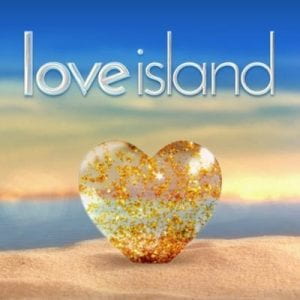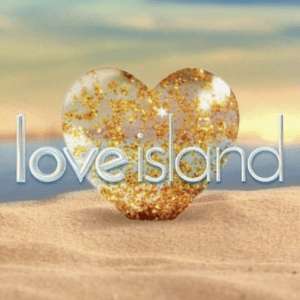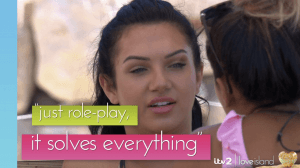Love Island careers advice is back
By uczjsdd, on 23 August 2021

It’s been a tough old year and a half, hasn’t it? However…and I don’t want to jinx things…many of us are finally now experiencing some form of return to normality. And I’m sure we can all agree that the greatest, shining, beautiful, symbol of this has been the return of Love Island to our screens.
But what is Love Island without its now-traditional accompanying careers advice blog (here’s a recap of 2017, 2018, and 2019’s)? Nothing, of course. The producers have a lot to thank us for. I’m sure you’ve already spotted them yourselves, but if not, below I summarise the three biggest career lessons from Love Island 2021.
There’s often a way back
Toby’s journey from barely intelligible to blooming philosopher has more to teach us than just the maturity-inducing effects of a stint in Majorca. Toby hopped from Kaz to Chloe to Abi to Mary, seemingly burning bridges without looking back. Until he did look back, at Chloe, and they re-built their bridge to potentially (fingers crossed) become the winners of the show (I’m writing this before the final).
In careers, it can be tempting to avoid trying something new and appealing for fear of burning bridges. Every sector is different, but if this is your concern, you can usually reassure yourself by asking around about the possibility of returning to your particular field if your new route doesn’t work out, and by seeking examples of people who’ve done it before you.
Just as Toby had some grovelling to do, you may have to work hard to convince employers you want to re-enter the field, and you may have to come in at the same level at which you left. But more often than not, in careers as in love: if it’s meant to be, you’ll find a way back.
Compatibility is complicated
Faye is an out-of-control climate-change-related forest fire, and Teddy’s a calm pool of healing water. And yet they seem to work. Conversely, with their shared love of running, science, and feeling clever, being similar on paper did nothing to help Priya and Brett avoid the ick. So maybe romantic compatibility isn’t, like, a thing we can totally predict?
The same is true in careers. People often want a “list” of jobs that will match them perfectly. And indeed, online questionnaires like Prospects Planner and job.mi will generate such lists for you. So give these a whirl, but don’t be too surprised if you’re not in love with – and perhaps even occasionally given the ick by – their top suggestions.
We, humans, are complex, and so are our careers. Look around any workplace and you’ll see most jobs can be tackled in a variety of ways by a variety of people. So view any job recommendation list as simply a starting point for your career thinking, and check out our careers essentials online resources, including “Your future and how to work towards it”, to learn about other ways to explore your options.
Logic is great, but intuition can be good too
Poor, sweet Liberty. Her head was completely gone, and then so was she. Despite Jake’s protestations and her love for him, she ended their relationship and left the villa early. As she repeatedly kept telling everyone, she had to be true to herself and trust her feelings.
Recent global events have left us a little like Liberty on Love Island: in an uncertain and unstable environment. How can we navigate a career in such conditions? Well, just as I assume Liberty did, perhaps we should learn from the findings of Dave Snowden’s IBM-based research. Snowden’s Cynefin framework states that in chaotic scenarios, an element of “sensing” and trusting ones intuition becomes important.
So if you’ve got a good or bad gut feeling about a career path, we certainly advise you to apply logic, and do your research to check any assumptions you’ve made are correct. But as with love, logic isn’t the only factor at play in career decisions, especially during tough times. Sometimes it’s right to trust your instincts.
If you’re struggling with any element of your career thinking, book a one-to-one appointment with one of our careers consultants.
 Close
Close








 Earlier this month SOAS Careers Service ran a discussion panel on LGBTQ+ experiences in the workplace. Sitting on the panel were LGBTQ+ professionals employed in a range of sectors; we heard from two management consultants, an artist, a charity worker, a higher education professional, a digital marketer, and a jobseeker. Three of the panellists had past experience in teaching, one had spent time in recruitment. The panel kindly shared a variety of thought-provoking views and personal experiences. The main messages I took away were:
Earlier this month SOAS Careers Service ran a discussion panel on LGBTQ+ experiences in the workplace. Sitting on the panel were LGBTQ+ professionals employed in a range of sectors; we heard from two management consultants, an artist, a charity worker, a higher education professional, a digital marketer, and a jobseeker. Three of the panellists had past experience in teaching, one had spent time in recruitment. The panel kindly shared a variety of thought-provoking views and personal experiences. The main messages I took away were:
 Did you come to our Careers in Science Communication and Science Policy forum earlier this month? No? Well fret not! You haven’t missed out because we’ve summarised the key points below.
Did you come to our Careers in Science Communication and Science Policy forum earlier this month? No? Well fret not! You haven’t missed out because we’ve summarised the key points below.

